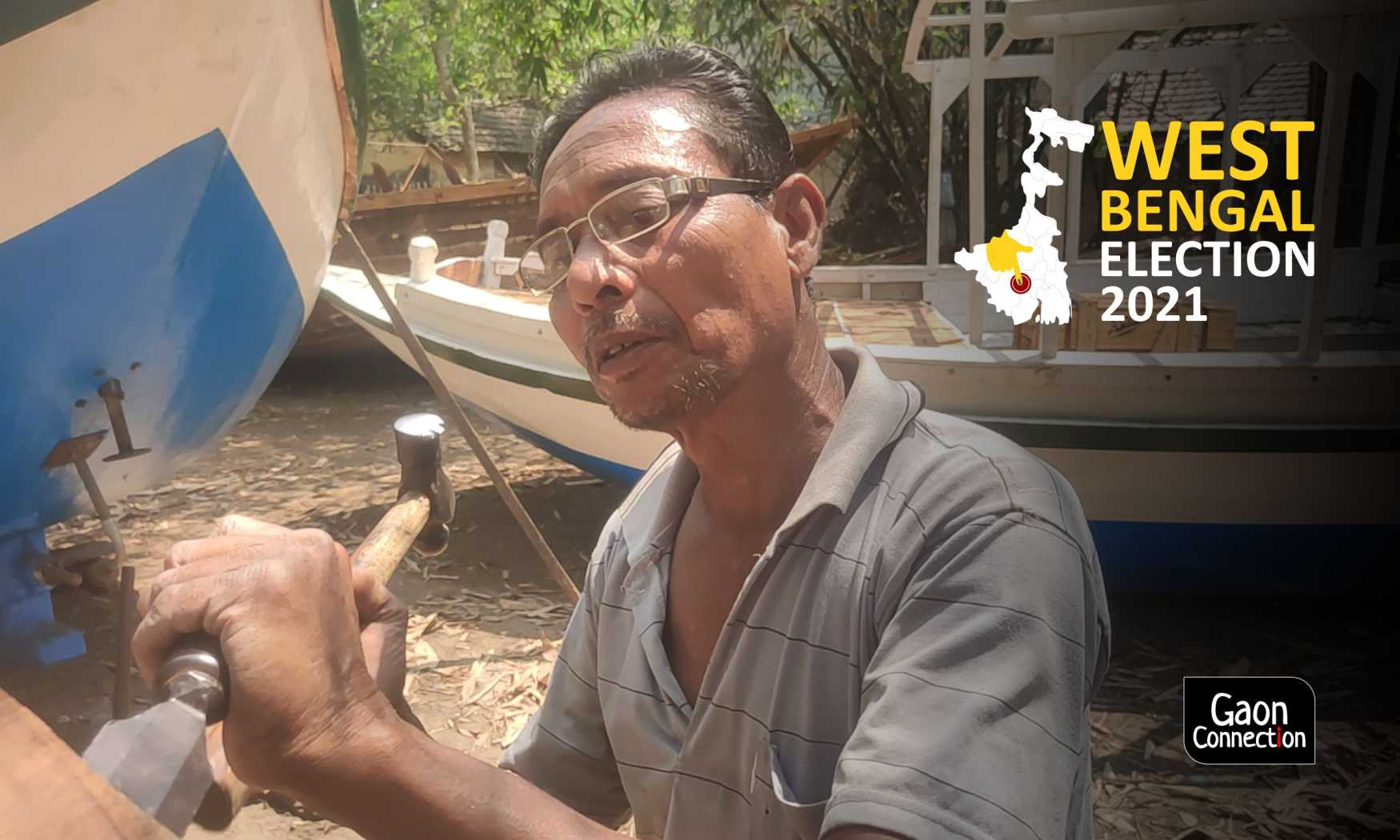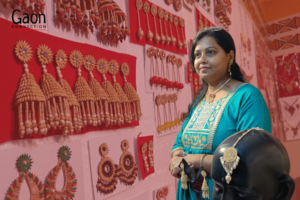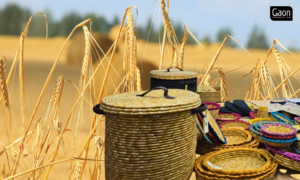Balagarh (Hooghly), West Bengal
Sheikh Qutubuddin prays for heavy rains during the monsoon. He longs for heavy showers that might maroon the locality he lives in. For, that is when what he manufactures is in great demand — wooden boats used to ferry people when fields turn into ponds and streets rivers.
The 38-year-old is one of the 700-odd wooden boat manufactures residing in Balagarh, a nondescript hamlet in West Bengal’s Hooghly district, around 75 kilometres from state capital Kolkata.
Balagarh’s boat manufacturing is almost like a cottage industry, with nearly every household involved in the work. But demand for their work and the wooden boats has dwindled and the once-thriving boat making industry is in the doldrums.
Also Read: West Bengal Election 2021: A shuttered Dunlop factory, an abandoned workforce, and politicking
Polling in Balagarh constituency, a Scheduled Caste reserved constituency, will take place tomorrow, April 10, in the fourth of the eight-phase West Bengal elections being held across 294 assembly seats. And the boatmakers of Balagarh have only one concern — loss of livelihoods.
History of boat making
Situated on the bank of the Hooghly, Balagarh’s tradition of boat making is believed to be several centuries old, with its boat builders even finding mention in the writings of Abul Fazal (1551-1602), the grand vizier of the Mughal emperor and the author of Akbarnama.
Also Read: The unmarried girl and other stories from a village in election-bound West Bengal
Swarup Bhattacharyya, visiting fellow of the Anthropological Survey of India, Kolkata, who is researching ‘Man-Boat Relationship’ told Gaon Connection the area close to Balagarh was a thriving port during medieval times, and that saw boat manufacturers settle here.
“The neighbouring area of Saptagram used to be a flourishing port. The villagers of Balagarh repaired the vessels whenever they were brought here. Slowly, they learnt the art of boat making, an art that was very profitable those days,” Bhattacharyya said.
But not any more.
“We have been building wooden boats for ages. Our forefathers also did the same work. We supply boats to the administration during floods and other natural calamities for relief work, but get no facilities in return. We do not even get a loan from banks as they consider us defaulters,” Qutubuddin told Gaon Connection.
This, coupled with the dwindling demand for boats, due to construction of flyovers and better transportation facilities has resulted in them hardly selling a boat or two a month.
“But, the monsoon is good news. We manage to sell at least two boats a week as they are needed in water-logged areas. But we have no work for the rest of the year forcing us to move to other states to eke out a livelihood,” said Qutubuddin.
Also Read: West Bengal Elections: Cheated twice, dejected Bardhaman farmers want their land back
Hard work and dismal profits
Boat manufacturers said the hard work that goes into boat making doesn’t translate into a good income. “We spend around ten to twelve hours a day working. It normally takes a week to build a small boat, and the bigger ones take up to a month. However, the profit is dismal,” rued 42-year-old Sheikh Sultan, a boat maker at Rajbanshi para (hamlet) in Balagarh.
Sultan said the manufacturing cost of small boats is around Rs 10,000, and selling price is just Rs 12,000. The bigger boats cost anywhere between Rs 90,000 and Rs 95,000 to make, but are sold for around Rs one lakh. “We have to take loans from private money lenders as banks refuse to give us any monetary help,” he complained.
The boatmakers of Balagarh complain no political party has addressed their concern of lack of livelihood and falling incomes. They have little hope from the candidates from their area in the West Bengal Assembly Polls.
The candidates
The Trinamool Congress (TMC) denied its two-time sitting legislator Ashim Kumar Majhi a ticket and fielded Manoranjan Byapari, a 70-year-old Dalit author and a socio-political activist. The Bharatiya Janata Party (BJP) has given a ticket to Subhash Chandra Halder.
Byapari used to be a rickshaw-puller, a dom (those who burn bodies in crematoriums) and a mid-day meal cook for over two decades. A former refugee from East Bengal (now Bangladesh), he also spent more than two years in prison during the height of the Naxalite movement in the 1970s.
Byapari said he is certain of victory. He assured he would work for boat manufacturers if voted to power. Although the TMC has been in power for a decade now, Byapari blamed the 34-year-old Left rule for the loss of industries in the state, including the plight of the boatmakers.
The BJP, however, is blaming the TMC. “People are frustrated with the misrule of the Trinamool. The voters are welcoming us with slogans of ‘Jai Shree Ram’ wherever we go. Even the minority community is supporting us. We are going to win,” said BJP candidate Halder.
While the politicians indulge in a blame game, the boatmakers of Balagarh have little hope from them.
“Even a decade ago, around one thousand two hundred people were involved in boat making. This has come down to a paltry seven hundred,” 55-year-old Nepal Biswas, a labourer involved in boat making in Balagarh, told Gaon Connection.
“We get work for just four to five months a year at a daily payment of around three hundred to three hundred and fifty rupees. This is hardly enough to run our families. No political party has done anything for us,” Biswas added.
Also Read: Betrayed by the ballot: The hijra community of North Bengal
Boat makers migrating to other states
Qutubuddin is aware of his area’s rich pedigree and wants to keep it alive but the apathetic attitude of the government has left him disappointed. Boat manufacturers say the absence of a proper income has forced them to quit their traditional occupation and migrate outside for better opportunities.
Age plays a huge role in the life of these boat makers. With age, the money they earn comes down too. Sixty-two-year-old Joydeep Majhi earns just Rs 100 for a 12-hour working day. “The wages decrease with advancing age, as it becomes difficult to lift heavy logs of wood and nail them. We are considered useless, a burden to manufacturers. And so, they pay us a nominal amount, but it is difficult to have even one square meal a day with this money. But, it is better than sitting idle,” Majhi told Gaon Connection.
When the conversation returns to elections, Qutubuddin promises to cast his vote for any candidate who assures him a decent livelihood and enough food for his children.


















